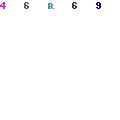SIUE to Begin Brazilian Exchange Program
On April 6th, 2012, Chancellor Vaughn Vandegrift signed the Protocol of Intentions to begin an academic exchange program between SIUE and the Federal University of Pernambuco in Recife, Brazil. This document formally establishes the desire between the two universities to establish an academic exchange program.
 The process toward establishing an exchange program with Brazil began in August of last year when Aldemaro Romero, dean of the College of Arts and Sciences, Ron Schafer, director of international studies, Nobby Emmanuel, vice chancellor for student affairs, and João Sedycias, professor and chair of foreign languages and literature, met to discuss Brazil’s “Science Without Boarders,” program. The program was established to provide scholarships to undergraduate students from Brazil for a one year study at colleges and universities in the United States. The program focuses on sciences, technology, engineering, and mathematics (STEM).
The process toward establishing an exchange program with Brazil began in August of last year when Aldemaro Romero, dean of the College of Arts and Sciences, Ron Schafer, director of international studies, Nobby Emmanuel, vice chancellor for student affairs, and João Sedycias, professor and chair of foreign languages and literature, met to discuss Brazil’s “Science Without Boarders,” program. The program was established to provide scholarships to undergraduate students from Brazil for a one year study at colleges and universities in the United States. The program focuses on sciences, technology, engineering, and mathematics (STEM).
The group decided to pursue a two-pronged approach, with both beginning the process to host Science Without Borders students and pursuing a direct exchange program with the Federal University of Pernambuco. The Science Without Borders approach will help to bring Brazillian STEM students to SIUE; however, this direct exchange will also allow for a two-way exchange of faculty and students between the two universities. Another advantage of this type of exchange is that it allows for a broader range of disciplines to be exchanged between the two schools.
The establishment of this exchange program is part of a larger goal of the College of Arts and Sciences to increase the internationalization of its programs. Currently in academia, there is a strong push to establish ties with the four BRIC (Brazil, Russia, India, China) countries. These countries are particularly appealing due to their progressive outlook and legislation toward education, availability of funding, and their growing role in the world economy.
“Russia and India are a little problematic to go to right now, but Brazil and China are much easier,” Sedycias explained.
During winter break of last year, Sedycias took his first of two trips to Brazil to establish the protocol of intentions. His time there was spent discussing the possibility of the exchange program and expediting the processes involved with establishing the program.
“I basically walked these documents from one level to another so a process that would usually take up to six months, we were able to accomplish in less than six weeks,” Sedycias shared.
After returning from his first visit, the SIU legal department began the process of reviewing the documentation for establishing the exchange. Then, over spring break, Sedycias returned to Brazil with a revised version of the contracts for the officials at Pernambuco to review. The current version was then sent back to SIU and signed by Vandegrift.
The next step in establishing the exchange program is to contact the departments on campus that may be interested in participating in order to see what specific interest exists. The established exchange will be open to all departments and schools, not just those in the College of Arts and Sciences. In addition to CAS, Sedycias estimates that the School of Pharmacy, the School of Business, and the School of Engineering will likely be major players in the exchange efforts. At the same time the faculty at Pernambuco will be evaluating interest in their programs as well.
“All the pieces are there, the critical mass is there, now it’s a question of identifying the players and getting them to work together to the benefit of students and faculty on both campuses,” Sedycias explained. “I think that it’s a very exciting place to be right now and I hope that our students take advantage of that.”
Filed Under: Foreign Languages & Lit • General CAS Stories












